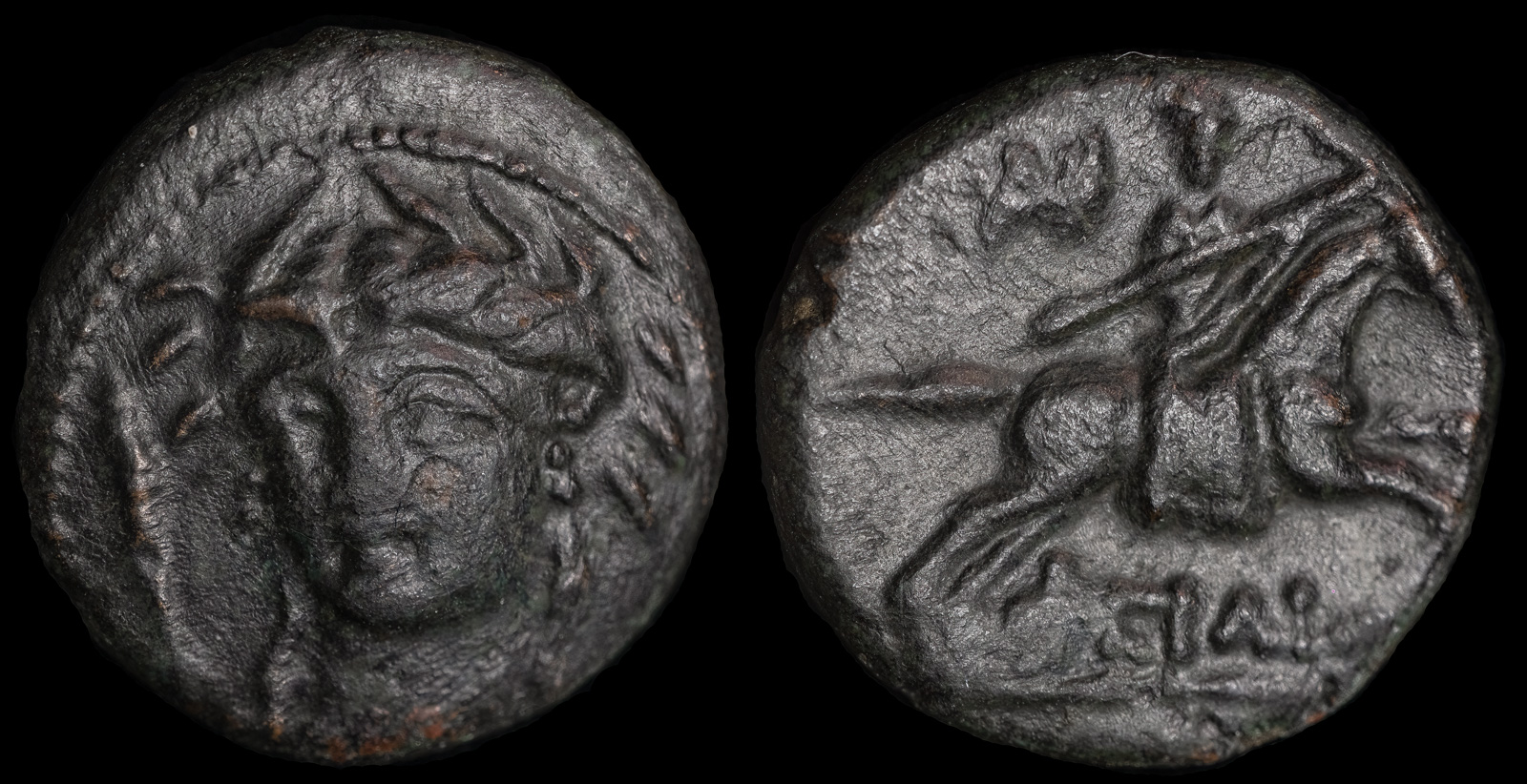
Thessaly, Pherai
Circa 300 BCE
Trichalkon 3.48g, 15mm
Head of the nymph Hypereia facing, slightly left, fish to left.
Ennodia riding a horse holding a torch right. FEPAIW[N], lion head fountain to upper left
BCD II 716
Ex BCD collection
Ex Aegean
Pherai has an interesting and at times brutal history.
It was mentioned as early as Homer, who listed it as the home of King Admetos and Queen Alkestis.
Back in those days, seeking a bride was a deadly matter. Alkestis’ father, King Pelias, offered her hand in marriage to the first suitor who could yoke a lion and a boar. Luckily, Admetos had Apollo on his side, since he had assisted the god when he was banished for a year from Olympos because he slayed a sacred dragon named Python at Delphi.
So, with Apollo’s help, Admetos won Alkestis’ hand. However, he didn’t read the fine print and forgot to sacrifice to Artemis, so when he took off the blanket he found his bed full of snakes, which wasn’t a positive sign.
Apollo therefore again stepped in and got the Fates drunk, so they promised that if anyone else volunteered to take Admetos’ place, then they would spare him. Unfortunately for Admetos, no one really liked him enough, so there were no volunteers. Just when it seemed his end, his bride Alketis volunteered out of love for her husband, and was killed.
But Herakles, being a decent guy, went down to the Underworld and fetched her, and they lived happily ever after.
During the Peloponnesian War, Pherai supported Athens. It was after the war that things got interesting.
First came Jason of Pherae, who united all the Thessalian cities and served as tyrant until he was assassinated in 370 BCE. That proved short-sighted because a new tyrant, Alexander of Pherae, took the reigns afterwards and created terror throughout the land until his wife killed him in 359 BCE.
Shortly after that, in 352 BCE, Pherai was conquered by Philip II. It remained in Macedonian hands until the Roman times.
Jason becomes dictator of Pherai.
Jason of Pherai destroys the walls of Herakleia Trachineia to ease passage into the rest of Greece.
Jason of Pherai is assassinated. His brothers Polydoros and Polyphron succeed him as kings.
While on their way from Pherai to Larissa, Polydoros is killed in his sleep by Polyphron.
Alexander of Pherai murders his uncle Polyphron and takes the throne of Pherai.
Alexander of Pherai is murdered by the brothers of his wife Thebe, Teisiphon, Lykophron and Peitholaos at Pherai.
Philip II defeats Lykophron of Pherai, who had been supported by Onomarchos.
Approximate marriage of Nikesipolis, maybe the nice of Jason of Pherai, to Philip II.